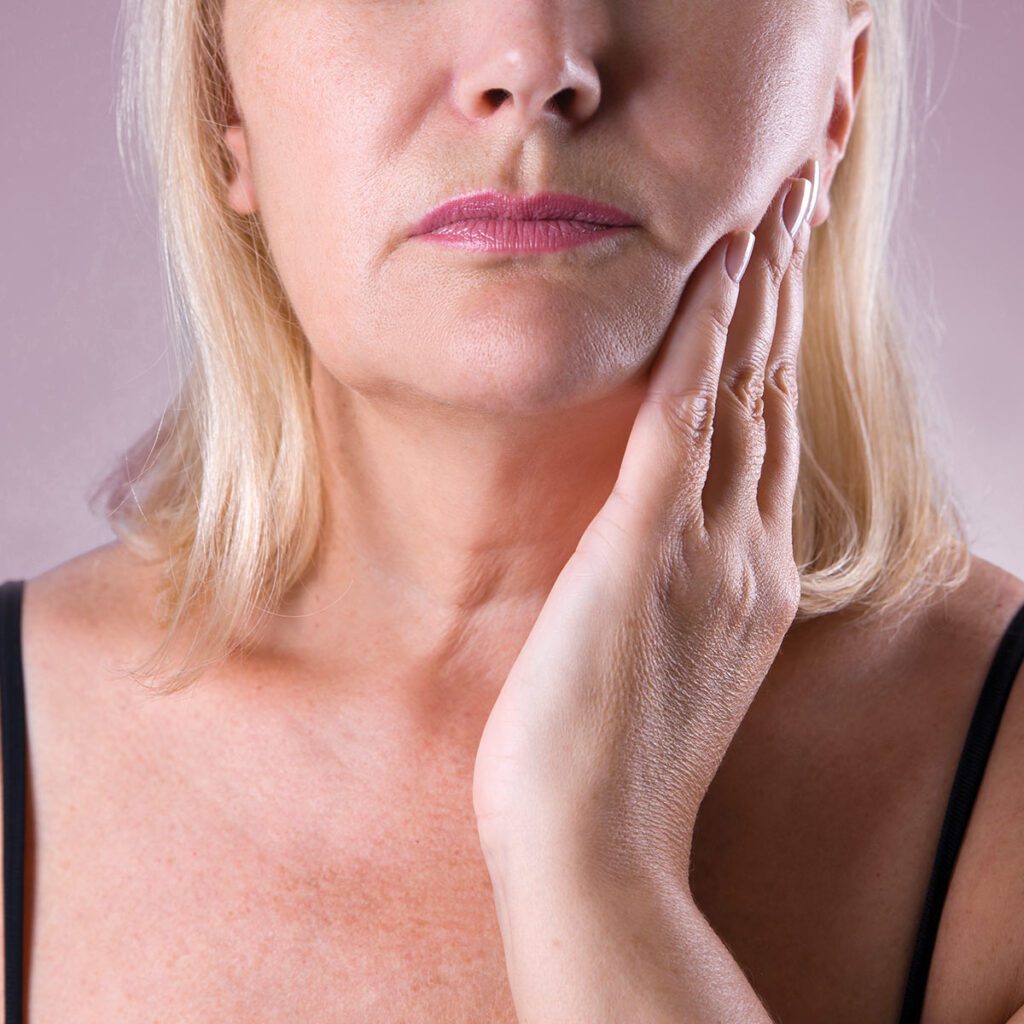Hormonal changes during menopause can put women at a higher risk of developing certain dental conditions.
Menopause and Dental Health
In the time leading up to menopause, a woman’s body experiences a drop in certain hormone levels. These changes, particularly lower levels of estrogen, can decrease bone density and saliva production and impact dental health. Because of this, women are at a higher risk of developing dental conditions that affect the gums and teeth, and it can impact their quality of life.
Common Conditions
One of the most common dental complications associated with menopause is burning mouth syndrome (BMS). This chronic condition involves a burning sensation that can affect the tongue, palate, and lips.
In addition to BMS, decreased saliva production can lead to dry mouth, a condition known as xerostomia that occurs when there isn’t enough saliva to keep the mouth wet. Dry mouth can be painful, and it increases the risk of infection, cavities, and tooth decay.
During menopause, women are also more susceptible to periodontal, or gum, disease, which occurs when plaque and bacteria build up on the teeth and under the gums, causing infection. The first stage of periodontal disease is gingivitis, which is characterized by red, irritated, and swollen gums.

Treatment and Outlook
Treatment options can provide relief and prevent periodontal disease from progressing. Sprays, lozenges, and rinses can help treat symptoms of BMS and dry mouth, while dental care and prescription medicine may be recommended to reverse gingivitis.
To help prevent these conditions, it is important to practice good oral hygiene including brushing your teeth at least twice a day and flossing. Other preventative measures include staying hydrated, eating a balanced diet, and regularly consulting with your dentist about how to best maintain your dental health during menopause.
An Expert Weighs In:
“It is wonderful to see so much education circulating around women’s health today. A recent study showed that 84% of women 50 and older don’t know how menopause affects their oral health. Perimenopause can begin as early as the mid to late 30s. That leaves a major population of women who may experience oral health conditions related to a decline in estrogen. This can include dry mouth, receding gums, tooth sensitivity, reduced saliva, bleeding gums, and the most mysterious of all, burning tongue. The great news is: it’s not in your head, you’re not alone, and your dentist and/or hygienist may be able to help. I would encourage every woman to track your symptoms and discuss them with your oral health care provider next time you see them.”

Kristen Conner, DMD
Northpoint Dental Co.
Meet the Author

Rachel Studebaker, BA, English, Summa Cum Laude
Rachel Studebaker is a graduate of Lee University where she earned a Bachelor of Arts degree in English with a minor in advertising. While attending Lee, Rachel served as editor-in-chief and creative director for the school’s biannual publication Vindagua and was a member of Sigma Tau Delta English Honors Society. Since joining CMC Publications as editor, Rachel has assumed the role of managing editor, where she is responsible for the annual development and completion of seventeen publications involving health, wellness, and lifestyles articles that are published in print and online for HealthScope, CityScope, and Choose Chattanooga magazines – premier publications serving S.E. Tennessee and North Georgia.
